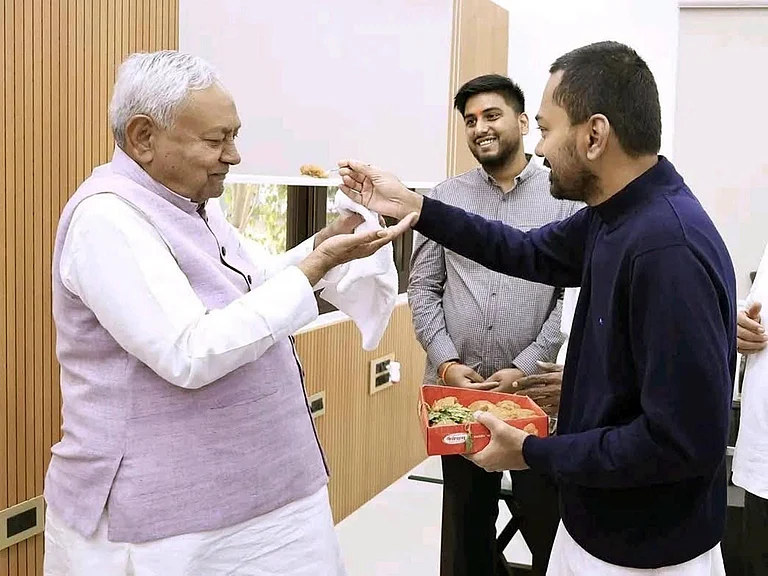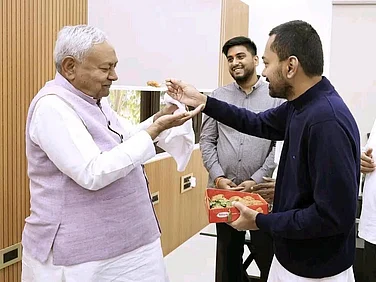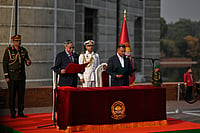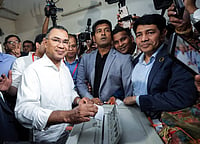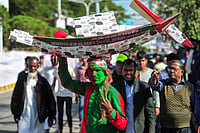In January 2022, officials at Barikul police station in Bankura district registered an FIR naming three persons and three/four others unnamed in connection with an alleged conspiracy against the government of India on behalf of the banned CPI(Maoist). The FIR said the police caught Shibu Murmu and Mangal Hansda of the same district from the spot where the alleged Maoist meeting was taking place, with Maoist posters in their possession, while Sabyasachi Goswami alias Kishor, who is from Kolkata, escaped along with three others.
The FIR was registered under sections 148 (rioting, armed with a deadly weapon), 149 (every member of unlawful assembly guilty of an offence) and 120B (party to a criminal conspiracy) of the Indian Penal Code (IPC), apart from the laws included in dealing with ‘offence against State – section 121 (waging, or attempting to wage war, or abetting waging of war, against the Government of India), 121A (Conspiracy to commit offences punishable by section 121), 122 (Collecting arms, etc., with intention of waging war against the Government of India), 123 (Concealing with intent to facilitate design to wage war) and 124A (sedition).
On April 24, the Barikul police arrested two youths from their home in the neighbouring Birbhum district, Arkadeep Goswami and Tipu Sultan alias Mustafa Kamal. On May 10, Sanjib Majumdar was arrested from Sodepur near Kolkata. The police say they are the three unnamed persons mentioned in the FIR. Sabyasachi Goswami, the police says, is absconding.
Notably, Sabyasachi, Arkadeep, Kamal and Majumdar were arrested from West Midnapore district in 2018, when they were slapped with the same penal provisions and spent 3 months in jail until getting released on bail. In Kolkata, human rights organisations have protested the arrest, alleging that the police were framing civil rights activists on false charges.
Wednesday’s Supreme Court order asking the Centre and the states to restrict the further use of section 124A until the Centre completes a review of the Act, and the instruction that “those who are in jail under the provisions of the sedition law can approach courts for relief”, comes as little relief to the likes of Murmu, Hansda, Goswami and Kamal who have been charged with involvement with the Maoist party.
Even if their bail application for section 124A is now considered by the judge in a sympathetic manner in the wake of the supreme court order, there are other sections that would prevent their early release.
In most cases involving alleged Naxalite activists, section 124A is usually only one among many sections that are slapped against them.
Take the case of two more arrests that happened in March. The Special Task Force of Kolkata Police registered an FIR on January 3 (STF PS case no 1/22), in connection with finding a bag full of Maoist leaflets and literature at one corner of the open fields in the city’s Maidan area. In connection with the bag, they first arrested Pratik Bhoumik from Murshidabad district and later Joyeeta Das, a Kolkata-resident, from Nadia district.
They were initially slapped with cases under sections 120B, 121, 121A, 122, 123 and 124A but later the police added the Unlawful Activities (Prevention) Act, or the UAPA.
Any leniency on the part of the court while considering their bail petition under section 124A would have no effect on their coming out of jail because of the other sections involved.
According to a former Maoist leader, who is presently involved in research work and rights movement and spoke to Outlook on condition of anonymity, it would have little effect on the people involved in Maoist politics even if the apex court strikes down the sedition law.
“It is mostly on the common people, intellectuals, rights activists or political opponents that the sedition law is solely applied. When it involves Naxalite activists, the police usually club several other sections, some tougher than sedition, and nowadays the UAPA as well,” the former Maoist leader said.
Human rights activists were divided over the supreme court order, some welcoming the move as a positive step towards the protection of human rights, others thought it was not of much use as long as special laws such as the UAPA and the NSA were in effect.
Prominent rights activist Sujato Bhadra, a retired professor of history, welcomed the decision.
“The UAPA, the sedition law and the National Security Act are all draconian legislation intended to infringe on human rights. But the sedition law being an usual law under the IPC, whereas UAPA and NSA are special acts, it is easier for the police to slap sedition charges on anyone and keep the person behind the bars for 90 days. For UAPA and NSA, some approval from the higher authorities and the judiciary are required,” Bhadra said.
He added that he hopes the judiciary will take Wednesday’s move forward and scrap the law altogether, just what had been done with section 66A of the Information Technology Act.
However, Ranjit Sur, general secretary of West Bengal’s largest human rights organisation, the Association for Protection of Democratic Rights (APDR), said that he did not think Wednesday’s order would have much of an impact on the ground.
“This would brighten the face of the Indian judiciary abroad but as long as even more repressive Acts like the UAPA and the NSA are in effect, even scrapping of the sedition Act would not be of much benefit towards the protection of human rights. The State would continue to harass people under the tougher laws,” Sur said.





